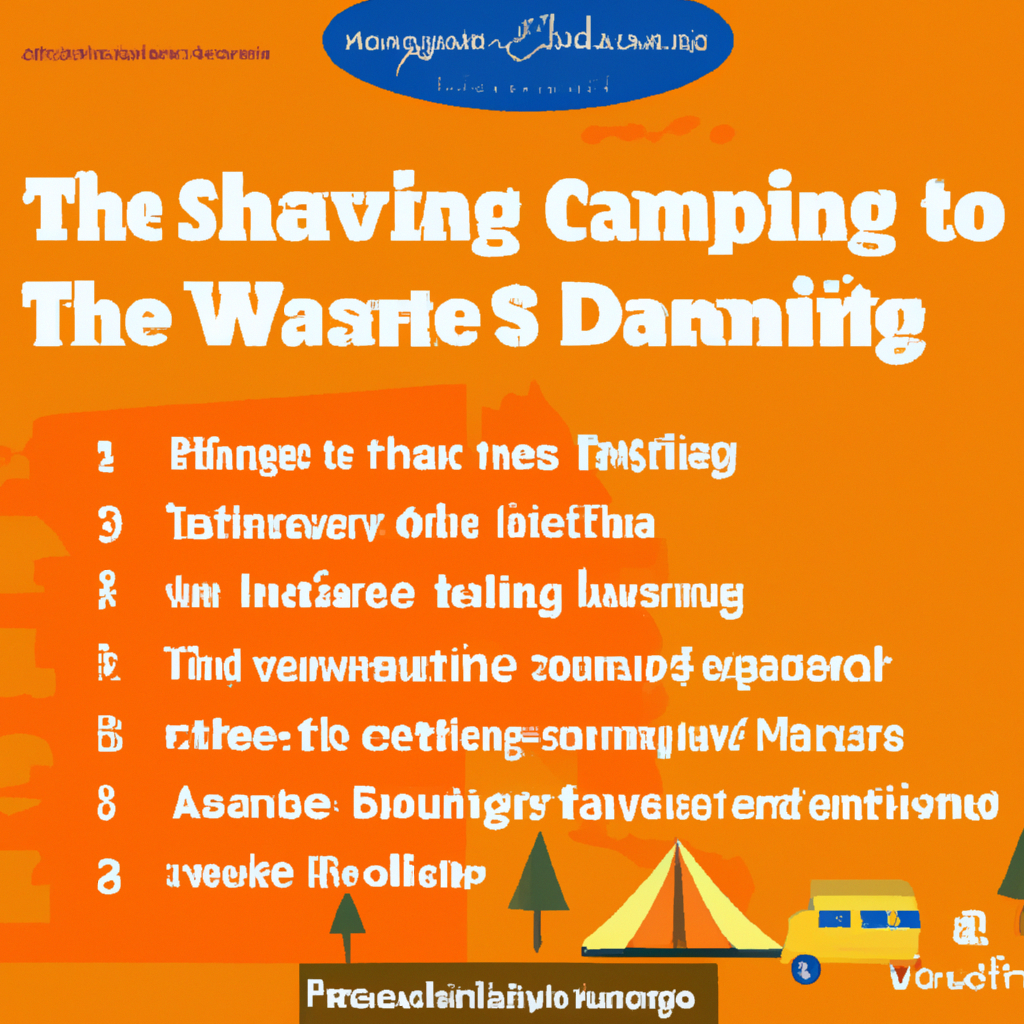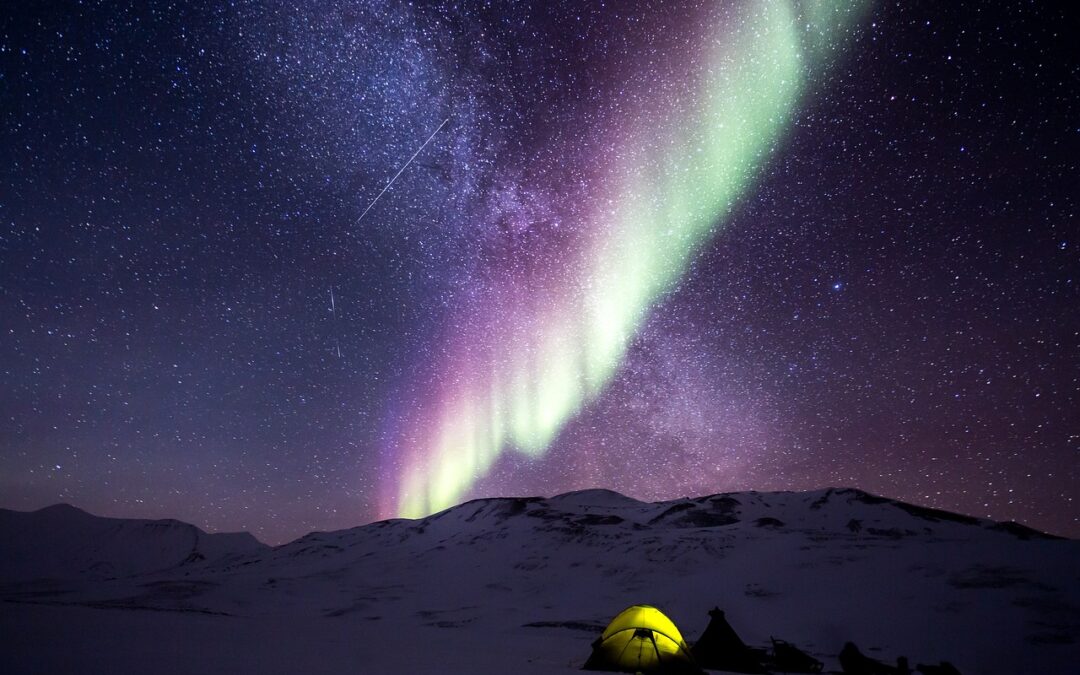Embarking on your first camping adventure? Don’t fret! “The Ultimate Camping Checklist for Beginners” from TrailTrekTribe is here to prepare you for the majestic allure of the great outdoors. Founded by Noah Parker, an audacious adventurer himself, TrailTrekTribe is not only a guide, but a community, aiming to share its profound love for the untamed wilderness with outdoor enthusiasts of all levels. Quick to become your go-to for reliable, practical advice, we base our comprehensive gear reviews and illustrated guides on real-life experiences and painstaking testing. Furthermore, we’re passionate advocates for responsible and sustainable adventuring. Whether you’re an experienced explorer or a novice nature-lover, you’ve found your tribe with TrailTrekTribe.com. Now, let’s embark on this extraordinary journey of outdoor exploration together with our ultimate camping checklist!
Understanding the Basics of Camping
What is camping
Camping, in its most basic sense, is an outdoor recreational activity where you leave the hustle and bustle of city life behind and spend one or more nights in the great outdoors. This could be in a tent, a caravan, or even under the stars. It’s an opportunity to reconnect with nature, enjoy some peace and quiet, and make some lasting memories.
Why people love camping
People love camping for a myriad of reasons. Some may be drawn by the allure of simplicity – leaving behind the complications of modern life to enjoy the simple pleasures of a crackling fire or a starry sky. Others enjoy the sense of adventure that comes with exploring the wilderness, while some may view it as a chance to bond with family and friends. Regardless of the reasons, the common thread that ties all campers together is the love for nature and the outdoors.
Benefits of camping
Camping offers numerous benefits, both for your physical and mental wellbeing. It allows you to escape your daily routine and enjoy a change of pace. spending time outdoors can boost your mood and relieve stress. It’s also a great way to get some exercise as camping activities often involve hiking, fishing, or swimming. On a mental level, disconnecting from modern technology and reconnecting with nature can lead to a refreshed and reenergized state of mind.
Planning Your Camping Trip
Choosing a campsite
Selecting the right campsite is an essential part of your camping trip preparation. Consider your camping goals – are you seeking solitude or a kid-friendly spot? Do you prefer a campsite by the lake or deep in the woods? Research the available campsites and make sure they have the facilities and amenities you need, such as toilets or fire pits.
Researching camping rules and regulations
Each campground or park has its own set of rules and regulations. These rules can cover everything from fire usage, pet policies, sound restrictions and more. Ensure you are aware of these guidelines before you set off on your camping trip – not only will this help you avoid fines and penalties, it also ensures a peaceful and enjoyable camping experience for everyone.
Checking weather conditions
The weather plays a crucial role in your camping experience. Always check the weather forecasts before your trip to avoid any unexpected surprises. From tent selection to packing your clothing, your plans need to align with anticipated weather conditions. Remember, it’s always best to prepare for the worst, even while hoping for the best.
Planning your itinerary
Before you start your camping trip, having a rough itinerary of your activities will help you pack appropriately and manage your time efficiently. Are you planning on hiking or fishing? Will you be cooking your meals or eating out? An itinerary doesn’t have to be strict, but it provides a basic structure and makes sure you don’t forget any essentials.
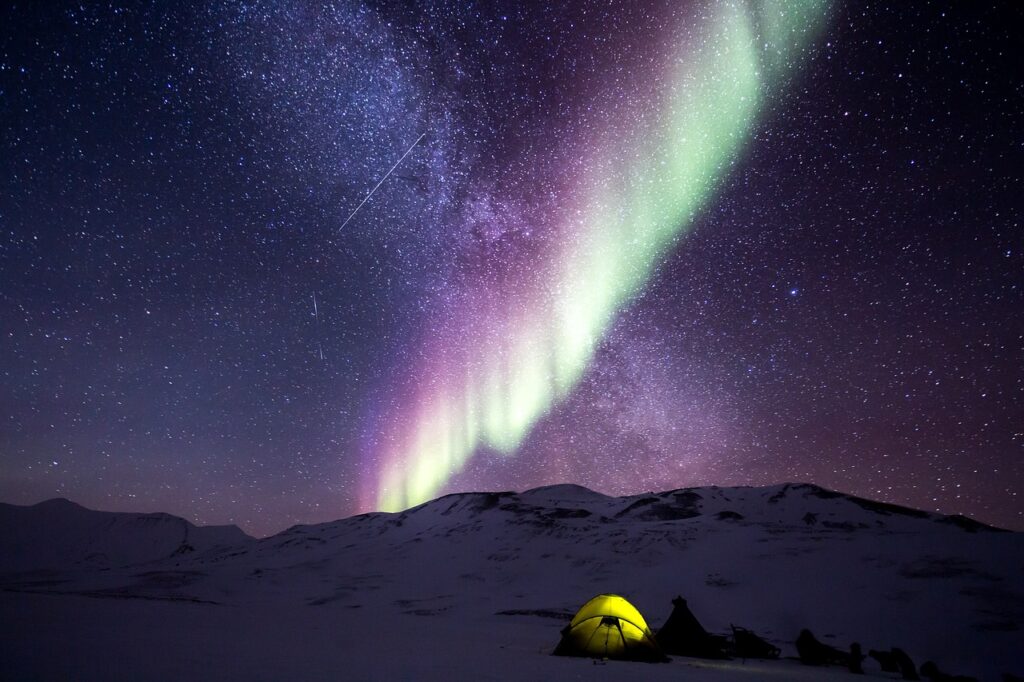
Essentials for Camping Gear
Different types of tents
There are various types of tents available, from family-friendly tents with separate rooms to lightweight backpacking tents for long hikes. Your choice should depend on factors such as the number of people, weather conditions, and your individual needs.
Proper use of a sleeping bag
From the type of insulation to the shape and size, there are several factors to consider when choosing a sleeping bag. Remember, it’s essential to know how to use it correctly to get the optimal heat retention and comfort. For colder weather, consider a mummy-shaped bag with a hood to keep you warm.
Choosing and using a camping stove
A camping stove is essential for your camping trip as it allows you to cook meals and boil water. There are different types, each with their own benefits – from the portable single-burner stoves, perfect for backpacking, to larger family camping stoves. Make sure you understand how to use your stove safely to prevent accidents.
Understanding the importance of a headlamp or torch
A reliable light source is essential when camping. Headlamps and torches are invaluable for navigating in the dark, whether you’re going to the toilet in the middle of the night or cooking after sunset. They are lightweight, portable, and can provide a high-intensity beam that illuminates a large area.
Food and Nutrition
Planning your camping meals
Plan your meals before your camping trip, considering factors like the duration of your trip, your means of cooking, and food storage facilities. Remember to focus on balanced meals that will provide you with the necessary energy for all your camping activities.
The importance of non-perishable foods
While fresh food is always a delight, it’s essential to take along non-perishable food items as they have a long shelf life and don’t require refrigeration. Cans of beans, tuna, pasta, instant rice, and dried fruits are camping staples that can keep you fueled during your trip.
Cooking equipment to consider
Apart from a camping stove, your cooking gear might include pots, pans, cooking utensils, cutlery, and a cooler. A portable grill can be a great addition if you love barbecued food. All this equipment should be lightweight, durable, and easy to clean.
Storing and disposing off food properly
Proper food storage is vital to prevent attracting animals to your campsite. Use airtight containers and coolers and store them away from your sleeping area. As for waste, make sure to pack out any garbage and dispose of it properly to maintain cleanliness and protect wildlife.
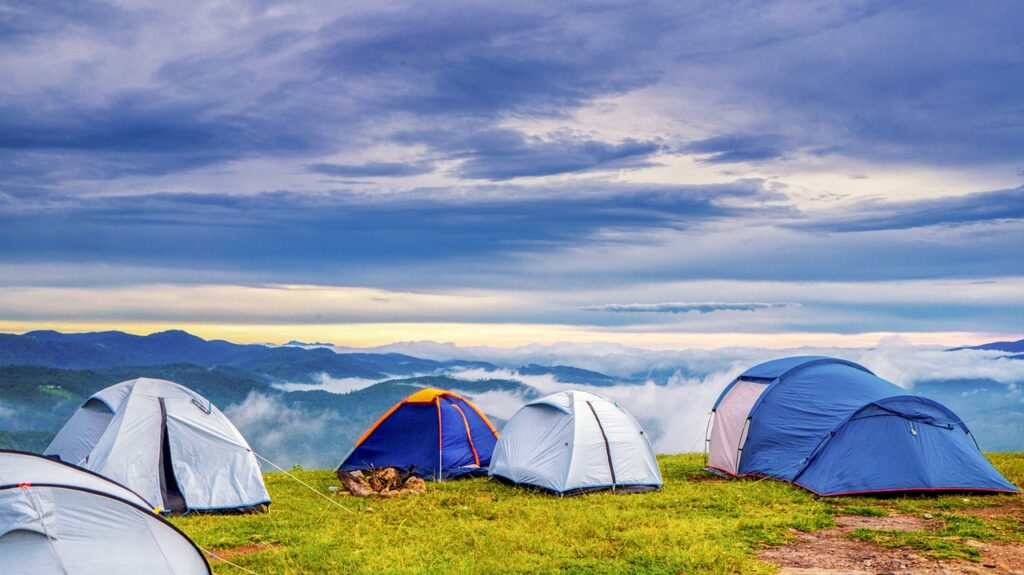
Clothing and Personal Items
How to pick suitable camping clothes
When it comes to clothing, pack for the weather and the activities you plan to engage in. Layered clothing is an excellent choice as it allows you to adjust for different temperatures. Quick-dry materials are useful if you expect rain or will be crossing water bodies, while sun-protective clothing can be essential for open campsites with little shade.
Importance of sturdy footwear
Your camping trip may involve a substantial amount of walking or hiking, so investing in sturdy, waterproof footwear is essential. Depending on the terrain, you might opt for hiking boots or sandals. The priority is to protect your feet and ensure you’re comfortable throughout your adventures.
Personal hygiene items to bring
Being in the great outdoors doesn’t mean you need to forget about hygiene. At minimum, you should pack items like toilet paper, soap, toothbrush, toothpaste, and small towels. They should all be eco-friendly to minimize your impact on the environment.
First Aid and Safety Equipment
First aid kit essentials
A well-stocked first aid kit is a must for any camping trip. Essentials include bandages, antiseptic wipes, tweezers, medical tape, safety pins, pain and fever medicines, and any personal medication you may need. It’s always better to be prepared in case of emergencies.
How to use a compass and map
Even with digital technology, knowing how to use a compass and a map is an important skill for navigating in the wilderness. Practice using them before you head out on your trip to ensure you’re comfortable with the basics.
Importance of a whistle and fire-starters
To enhance your safety, you should pack a whistle and fire-starters in your camping gear. Whistles can be used to attract attention in case of emergencies. Fire-starters, on the other hand, are essential for starting a fire for warmth, cooking, or as a distress signal.

Campsite Setup
Pitching your tent
Position your tent on a flat surface free from sharp objects. Ensure you pitch it away from water bodies and in a place that offers some protection from the wind. Practice pitching your tent at home first, so you feel confident setting it up in the outdoors.
Creating a cooking area
Set up your cooking area at least a few feet away from your tent to avoid any accident with fire. This area should be well-ventilated and clear of any flammable materials. Keep your cooking gear organized and clean to ensure efficiency when you prepare meals.
Setting up hygiene stations
For personal cleanliness, set a spot to become your hygiene station. This may include your toiletries, towels, and any baby wipes or hand sanitizers. Also, ensure you dig small holes at least 200 feet from any water source for bathroom use and cover them after use.
Leisure and Entertainment
Easy to pack leisure activities
Camping is an ideal time to engage in leisurely activities you enjoy. Bring along lightweight pursuits like a deck of cards, travel-sized board games or simple sports equipment like a Frisbee. Books or photography equipment are also great for camping downtime.
Popular campfire games
Who doesn’t like sitting around a campfire? Extend the fun with games like Truth or Dare, charades, or telling ghost stories. These activities can be a great way to bond, have some fun, and create unforgettable camping memories.
How to enjoy nature responsibly
Nature is the best playground. While enjoying it, always remember to respect flora and fauna and not to leave any trace of your presence. This means not picking up plants or rocks, respecting animals, and not leaving any litter behind.
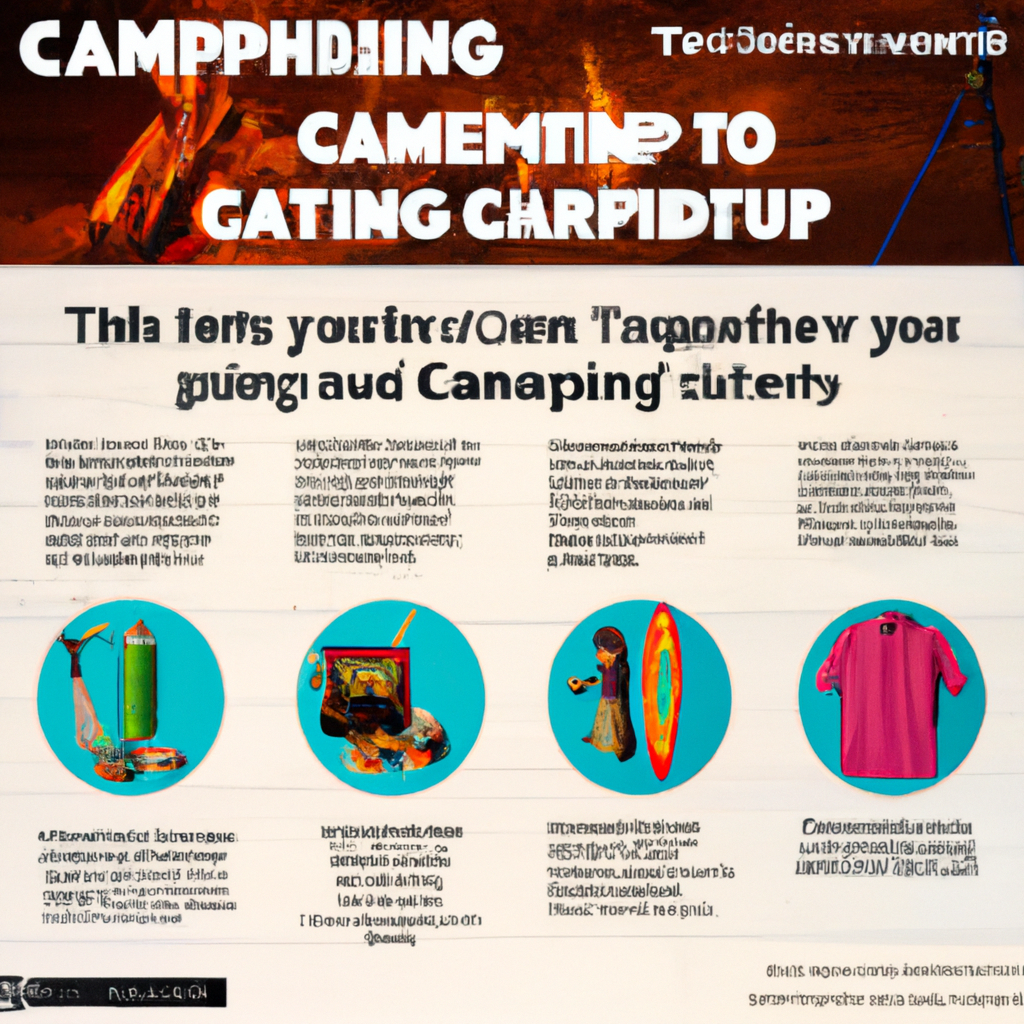
Campsite Etiquette
Respecting nature and wildlife
Always remember that you are a guest in nature’s home. Treat all animals and plants with respect. Keep a safe distance from wildlife and never feed or approach them. Stick to the trails to preserve nature and minimize your impact on the environment.
Adhering to campsite rules and regulations
Each campsite has its rules and regulations for a reason—to ensure everyone has a pleasant and safe experience. Do your part—know the rules and follow them. This includes noise restrictions, fire safety rules, pet policies, and use of public facilities.
Principles of Leave No Trace
This principle encourages individuals to minimize their impact on the environment. This involves traveling on designated paths, packing out what you pack in, and leaving everything as you found it.
Post-Camp Procedure
How to dismantle your campsite
When it’s time to leave, ensure you thoroughly clean up your campsite. This includes picking up all trash, extinguishing your campfire properly, packing up your tent, and restoring the area to its original condition.
Checking for left-behind items
Before you leave, do a final sweep of your campsite to ensure you haven’t left anything behind—a forgotten sleeping bag or water bottle can quickly become a piece of litter.
Waste disposal techniques
Dispose of any waste responsibly. Use designated trash cans if available. If not, carry your garbage home with you. Do not bury or burn waste as it harms the environment and wildlife.
By adhering to this comprehensive checklist, you’ll bring effective planning, gear, and etiquette to your camping journey. At TrailTrekTribe, we value our natural environments and aim to foster a community of responsible adventurers. So pack your bags, plan your trip, and join us as we enjoy the great outdoors. Happy Camping!
